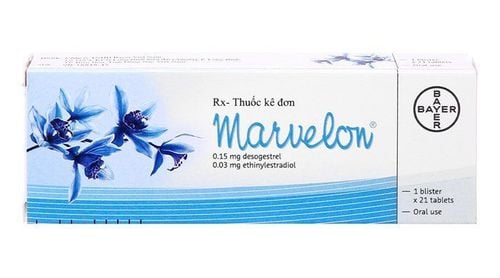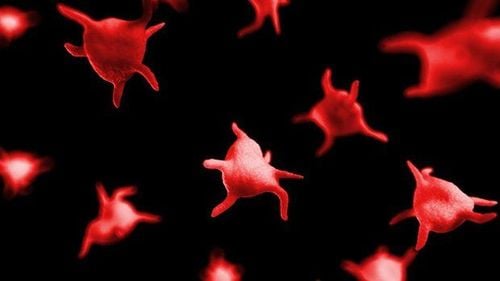Isotretinoin 10mg is a medication used for individuals aged 12 and older to treat severe acne that cannot be cleared by any other methods, including antibiotics
1. What is Isotretinoin?
Isotretinoin, also known as 13-cis retinoic acid, is a derivative of retinoic acid, a form of Vitamin A. It works by reducing the amount of oil produced by the sebaceous glands on your skin. Less oil on the skin helps keep the skin clear of acne. It also helps your skin renew itself more quickly.
Isotretinoin oral medication is available in capsule forms of 5 mg, 10 mg, and 20 mg.
Formulation: Capsule
2. Uses of Isotretinoin
Isotretinoin 10mg is used to treat severe acne. It works by reducing the amount of oil produced by the glands on the skin, inhibiting bacterial growth, reducing clogged pores, and inflammation. Nine out of ten people treated with isotretinoin see a significant improvement in their acne after one course, although in the first few weeks of treatment, the acne may worsen before it begins to improve.
3. Dosage of Isotretinoin 10mg
The usual dosage of Isotretinoin is 10mg or 20 mg once daily until the acne clears up (usually 3-5 months). Afterward, your doctor will reduce the dose by half for another 2-4 months to prevent the acne from returning and causing scars.
4. How to Use Isotretinoin
Take Isotretinoin 10mg once daily, at the same time each day. It is best to take isotretinoin with or immediately after a meal. Swallow the entire capsule without breaking or chewing it.
Continue using isotretinoin until the prescribed treatment course is completed. It may take a few weeks before you begin to notice a difference in your acne. Sometimes, isotretinoin may cause acne to worsen for 3 to 4 weeks after starting treatment.
If you forget to take Isotretinoin 10mg, take it as soon as you remember. However, if it is close to the time for your next dose, simply take the next dose on time. Do not take a double dose.
5. Advantages and Disadvantages of Isotretinoin
Advantages:
- Works well to clear severe acne when other treatments are ineffective.
- Effectively treats severe acne by targeting all four main factors causing acne: clogged pores, bacteria, inflammation, and oil production.
- Only needs to be taken once or twice a day.
- Most people feel their skin is clearer after one treatment course. Clearer skin may last even after stopping isotretinoin.
Disadvantages:
- Can cause birth defects, so pregnancy tests are required before using the medication.
- Increased risk of bone fractures, especially for those who engage in sports.
- May increase blood sugar levels, requiring more frequent monitoring.
- May cause severe liver, pancreas, stomach, or intestine damage.
- Not ideal for individuals with a history of mental health issues, such as depression, delusions, hallucinations, or suicidal thoughts.
6. Side Effects of Isotretinoin
Like any medication, there are risks and benefits. Even when the medication is working, you may experience some unwanted side effects while using Isotretinoin 10mg, including:
- Headaches, fatigue, muscle pain (common symptoms that may subside over time).
- Mood changes, anxiety, depression, or worsening depression, aggression, thoughts or talk of suicide, and self-harm.
- Severe headaches with blurred vision.
- Severe diarrhea, especially if it contains blood.
7. Precautions When Using the Medication
Do not use Isotretinoin if you are pregnant or may become pregnant:
- Before starting treatment, your doctor may arrange a pregnancy test to ensure you are not pregnant.
- If you are sexually active, consult your doctor about reliable birth control options. You must use reliable birth control for at least 1 month before starting Isotretinoin, throughout treatment, and for at least 1 month after stopping treatment.
- You may be required to sign a consent form to confirm you understand the severity of this.
Note: Men using isotretinoin do not need to use any birth control; birth defects have not been identified in children whose fathers have taken isotretinoin.
Isotretinoin reduces oil production on the skin, which may cause dryness of the skin, mouth, cracked lips, dry nostrils, and dry eyes. These effects may be uncomfortable. Here are some tips for managing them:
- Lips: Use lip balm with moisturizers and sunscreen as soon as treatment begins. Apply lip balm frequently during the day, such as after waking up, after eating or drinking, at night, and whenever your lips feel dry.
- Skin: Start using fragrance-free moisturizing cream right from the start.
- Use a soap-free cleanser as it is less irritating to the skin compared to soap-based cleansers. Avoid beauty treatments like chemical peels, dermabrasion, and waxing during treatment and for at least 6 months afterward.
- Eyes: Your eyes may become dry and itchy, especially if you wear contact lenses. Ask your pharmacist for a suitable eye lubricant (artificial tears).
- Nostrils: The inside of your nostrils may become dry and crusted, leading to mild nosebleeds. Gently apply a thin layer of mineral oil inside your nose for relief.
Isotretinoin may make you more sensitive to sunlight, and your skin may burn more easily:
- Avoid unnecessary sun exposure.
- When outdoors, protect your skin with oil-free sunscreen (SPF50+).
- Apply sunscreen to all areas, especially the face, neck, and ears.
- Wear protective clothing against sunlight.
- Wear sunglasses when outdoors.
Other precautions:
- Breastfeeding: Do not use Isotretinoin if you are breastfeeding.
- Blood Donation: Both men and women should not donate blood during treatment and for 4 weeks after stopping treatment.
- Avoid Waxing: Waxing can cause permanent scarring in people using Isotretinoin. To prevent scarring, do not wax while using Isotretinoin and for 6 months after stopping it.
- Blood Tests: Before starting treatment, your doctor will test your blood to rule out pregnancy and monitor liver function, blood lipids, and blood count. These tests should be repeated at least once during the 16 to 30-week course of isotretinoin.
- Overall, Isotretinoin 10mg has many serious side effects, so you need to discuss the risks and benefits with your healthcare provider.
To arrange an appointment, please call HOTLINE or make your reservation directly HERE. You may also download the MyVinmec app to schedule appointments faster and manage your reservations more conveniently.













